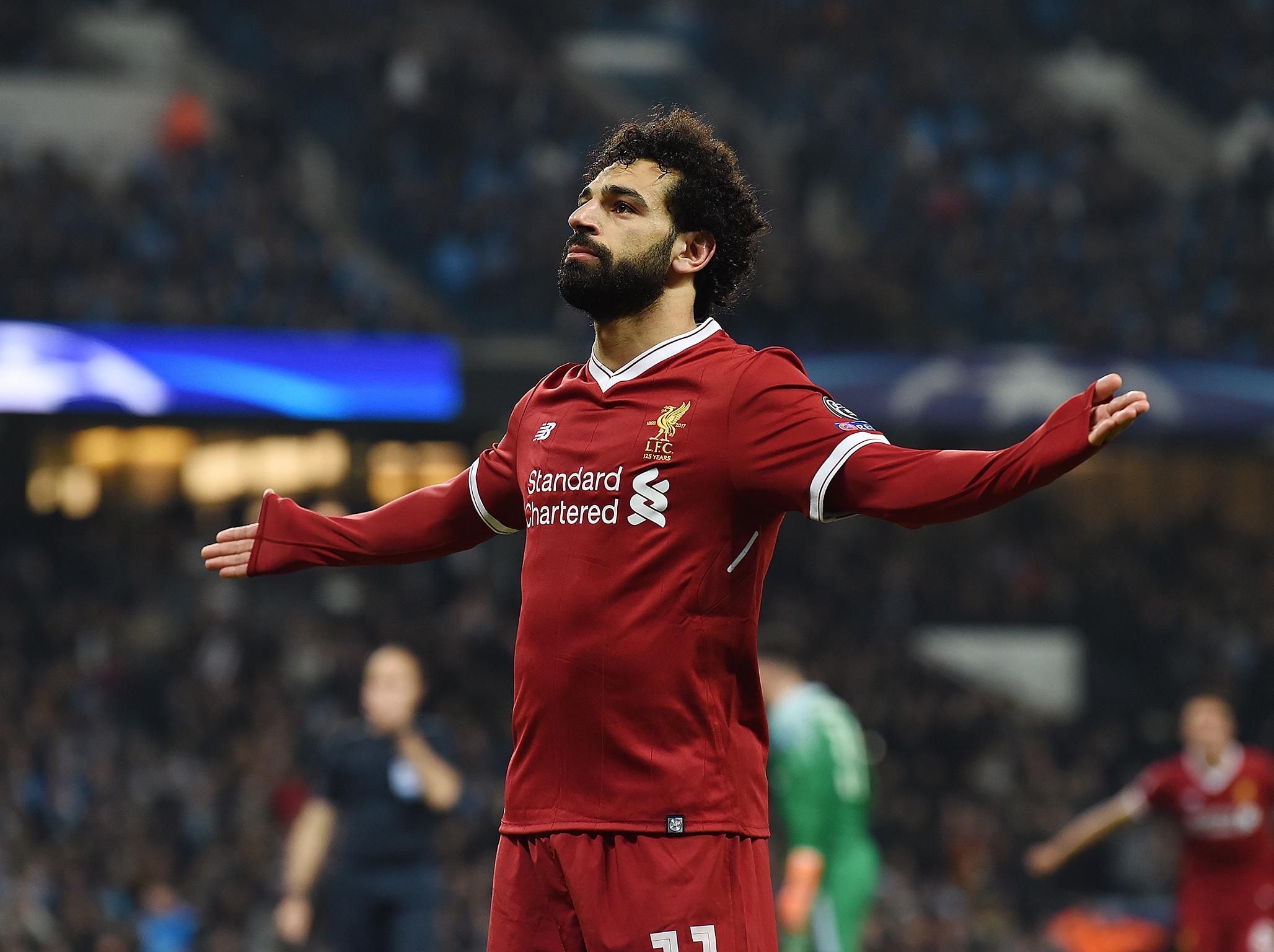Superstar Egyptian footballer Mohamed Salah personifies the hope and expectation of a great but deeply troubled country
Despite his enormous success, Salah has never forgotten his roots, and remains an immensely proud Egyptian


If you want to trace the recent history of the most populous country in Africa, then the life story of Egyptian footballer Mohamed Salah would be a good starting point.
As the star player prepares for a European Cup final with his club, Liverpool, and then a World Cup in Russia, the nation Salah left while still a teenager is in desperate need of the sense of hope and expectation he provides.
Salah had only just reached adulthood when Egypt exploded into arguably the most widely watched revolution in modern times. Thousands took to the streets of Cairo and other major cities and towns at the start of the so-called Arab Spring of 2011.
Young people, and especially newly enfranchised teenagers like Salah, believed that a new democratic era was really possible. It took less than three weeks to overthrow the 30-year rule of the dictatorial president Hosni Mubarak, as Cairo’s Tahrir Square became the focal point of the uprising.
I was one of numerous foreign journalists who witnessed some of those heady days, sharing an experience that had all the drama and excitement of a massive crowd celebrating a sporting triumph.
Meeting Salah at this year’s hugely glamorous Professional Footballers’ Association awards in London showed me how he at least has lost none of that giddy ebullience. Expressing his delight at being the first Egyptian to win the Player of the Year trophy following an outstanding season at Liverpool, Salah said: “Hopefully I’m not the last one! I’m very proud to win and I’ve worked very hard.”
Clearly moved, but not in the slightest bit arrogant, Salah came across as bold, charismatic, and wise beyond his years. The kind of laddish impetuousness associated with young footballers was non-existent as he devoted his attention to charity worker Moin Younis, a wheelchair-bound teenager affected by a rare skin disorder. Moin is the sort of person that Salah supports endlessly. Flashing his infectious smile, he also used the PFA ceremony to encourage fellow Egyptians to “chase their dreams”.
But what a contrast this was to what has actually happened in Egypt since the 2011 protests.
The fleeting experiment with democracy crumbled into dust, and by July 2013 army chief Abdel Fattah al-Sisi had staged a coup d’etat. Not only was the newly and first democratically elected president Mohamed Morsi imprisoned without a fair trial along with other Muslim Brotherhood leaders, but the Egyptian Constitution was suspended. Any further attempts at dissent were suppressed with beatings, more jail sentences and indeed executions.
Clampdowns on differences of opinion continue unabated. Poverty is endemic across Egypt, while unemployment spirals, particularly among those under 30. The International Monetary Fund has called for a rise in VAT, a devaluation of the Egyptian pound, and cuts in fuel subsidies in return for an emergency $12b loan.
Egypt’s chronically weak economy manifests itself in all kinds of social and security problems, and especially violence. Salah ended his career playing football in Egypt for his hometown club, El Mokawloon SC, in early 2012, following the Port Said Stadium disaster. There was a riot that saw 74 people killed and more than 500 seriously hurt during clashes between Al-Masry and Al-Ahly supporters.
The rest of the league season was cancelled, leaving Salah to move to the Swiss side, Basel, and then to Chelsea, Fiorentina, Roma, and now Liverpool.
Yet despite his enormous success, Salah has never forgotten his roots, and remains an immensely proud Egyptian. He has funded a water treatment centre in his home village of Nagrig, some 80 miles north of Cairo, in the parched Nile Delta, while also pouring money into hospitals, schools and emergency services.

Maher Shtayeh, the mayor of Nagrig, said: “Mohamed is a frequent visitor to his home. He loves us here, and he loves Egypt.”
Others in Nagrig have told me that Salah is funding some supporters who would otherwise find the cost of watching him live in Russia absolutely impossible. The minimum wage in Egypt has been stagnant for years at the equivalent of under £100 a month. Even if subsidised, fans’ trips will still be extremely difficult, but at least they will have a man they nickname “The King” to inspire them, especially after he magnificently secured his country’s first participation in the World Cup tournament since 1990.
Salah’s influence is now so great that more than a million voters are said to have scribbled his name on ballot papers for president at an election in March that Sisi “won” with an absurd 97 per cent of the vote.
Little wonder that the winner of this year’s Premier League Golden Boot – the title for being the top goalscorer in England – has his own pair of boots now on display in the Egyptian collection at the British Museum in London.
They “tell a story of a modern Egyptian icon, performing in the UK, with a truly global impact”, according to exhibit keeper Neal Spencer.
We hear much about Egypt’s glorious past, but ancient history is not enough. Mohamed Salah is all about its future, and anybody who believes in the talent and energy of his wonderful country should be sharing his dreams.
Join our commenting forum
Join thought-provoking conversations, follow other Independent readers and see their replies
Comments
Bookmark popover
Removed from bookmarks